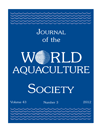
JOURNAL OF THE WORLD AQUACULTURE SOCIETY
Scope & Guideline
Leading the Charge in Aquatic Science Excellence
Introduction
Aims and Scopes
- Aquatic Animal Health and Nutrition:
Research focusing on the health, nutrition, and feeding practices of aquatic species, including the use of functional feeds, probiotics, and alternative protein sources. - Aquaculture Systems and Technologies:
Studies on various aquaculture systems including recirculating aquaculture systems (RAS), biofloc technology, and the integration of aquaculture with other agricultural practices (e.g., aquaponics). - Environmental Impact and Sustainability:
Investigations into the environmental effects of aquaculture practices, including water quality management, waste management, and the sustainability of feed resources. - Genetics and Breeding:
Research on the genetic improvement of aquaculture species, including selective breeding, genetic mapping, and the use of biotechnological tools to enhance growth and disease resistance. - Socio-Economic Aspects of Aquaculture:
Analysis of the socio-economic implications of aquaculture development, including market access, economic impact assessments, and the role of aquaculture in food security. - Disease Management and Biosecurity:
Studies addressing the prevention, diagnosis, and treatment of diseases affecting aquaculture species, including the development of vaccines and biosecurity measures.
Trending and Emerging
- Sustainable Feed Alternatives:
There is a growing focus on developing sustainable feed alternatives, such as insect meal, plant-based proteins, and by-products from other industries, to reduce reliance on traditional fish meal and enhance the sustainability of aquaculture. - Impact of Climate Change:
Research exploring the effects of climate change on aquaculture practices, species adaptability, and ecosystem interactions is increasingly prominent, reflecting the urgent need for adaptive strategies. - Microbiome Research in Aquaculture:
Emerging studies on the role of microbiomes in fish health, growth performance, and disease resistance are gaining traction, emphasizing the importance of gut health and microbial ecology. - Integration of Technology in Aquaculture:
The incorporation of advanced technologies, including automated systems, sensor technologies, and data analytics, is on the rise, aimed at improving efficiency and monitoring in aquaculture operations. - Aquaculture and Food Security:
Research addressing the role of aquaculture in global food security, particularly in light of increasing population pressures and the need for sustainable food sources, is becoming increasingly significant.
Declining or Waning
- Traditional Aquaculture Practices:
Research focused on conventional aquaculture methods is becoming less prominent as innovative technologies and sustainable practices gain traction. - Wild Capture Fisheries Interactions:
Studies that explore interactions between aquaculture and wild fisheries are appearing less frequently, possibly due to a growing focus on aquaculture's self-sufficiency. - Aquaculture of Less Common Species:
Research on the farming of less commercially viable or niche species is declining as the industry shifts towards more economically viable and high-demand species.
Similar Journals

AQUACULTURE INTERNATIONAL
Transforming Aquaculture Through Research ExcellenceAquaculture International is a premier peer-reviewed journal dedicated to advancing the field of aquaculture and aquatic sciences. Published by Springer in the Netherlands, this journal has established itself as a critical resource for researchers, professionals, and students seeking to explore the latest advancements and innovations in the aquaculture industry. With an impressive impact ranking—Q2 in both Agronomy and Crop Science, and Aquatic Science as of 2023—this journal ranks favorably within its categories, placing in the top percentiles of Scopus' metrics. Covering a diverse array of topics related to sustainable aquaculture practices, species cultivation, and environmental impacts, Aquaculture International aims to foster dialogue and collaboration among scholars and industry practitioners. As the field evolves, the journal remains committed to publishing high-quality research that informs policy and practice, enhancing the sustainability of aquatic resources from 1993 to 2024 and beyond.

Applied Animal Science
Transforming Research into Real-World ImpactApplied Animal Science, published by Elsevier Science Inc, is an esteemed journal that has quickly made its mark in the fields of Animal Science and Food Science since its inception in 2019. With an ISSN of 2590-2873 and an E-ISSN of 2590-2865, this journal has received commendable recognition, achieving a Q2 ranking in both categories as of 2023. Encompassing a broad scope that integrates cutting-edge research and practical applications, Applied Animal Science seeks to disseminate knowledge that advances the well-being of animal systems and food safety. Researchers and professionals in the agricultural and biological sciences benefit from its high-quality articles, which are ranked #152 out of 490 and #200 out of 389 in their respective fields according to Scopus rankings. While currently not open access, the journal remains accessible to a global audience of scholars eager to explore innovative findings and robust methodologies. As it continues to grow through 2024 and beyond, Applied Animal Science aims to be a pivotal platform for fostering knowledge exchange and inspiring future studies in its domain.
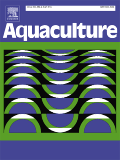
AQUACULTURE
Unveiling insights for a thriving aquatic ecosystem.AQUACULTURE is a premier academic journal dedicated to the field of aquatic science, published by Elsevier. With a robust Impact Factor, the journal is renowned for its significant contributions to aquatic biology and the sustainable development of aquaculture practices. Since its inception in 1972, AQUACULTURE has established itself as an essential resource for researchers and professionals in the industry, regularly ranked in the Q1 category of aquatic science journals and positioned in the 14th percentile of its field according to Scopus rankings. Covering a wide array of topics including fish biology, aquaculture technology, sustainable practices, and environmental impacts, AQUACULTURE aims to disseminate innovative research findings that drive the industry forward. The journal, accessible to a global audience from its base in the Netherlands, continues to foster collaboration, discussion, and application of research to both academic and practical realms within aquaculture. Researchers and students alike will find valuable insights and current trends in this highly respected publication.

INDIAN JOURNAL OF FISHERIES
Empowering fishery professionals with cutting-edge research.Welcome to the Indian Journal of Fisheries, an esteemed publication of the Central Marine Fisheries Research Institute, dedicated to advancing the field of aquatic sciences. Established in 1974, this journal serves as a crucial platform for researchers, professionals, and students interested in the dynamics of fishery research within the Indian context and beyond. With an impact factor highlighting its rigorous peer-review standards, the journal publishes research that significantly contributes to the understanding of fisheries management, conservation, and sustainable practices. Although currently categorized in Q4 for Aquatic Science (2023) and ranked #215 out of 247 in Scopus, its increasing visibility demonstrates the journal's dedication to enriching the scientific discourse surrounding aquatic ecosystems. Located in Kochi, India, and published intermittently from 1977 to 2024, it seeks to bridge knowledge gaps while promoting innovative methodologies in fishery sciences. While not an open-access journal, it fosters a vital exchange of scholarly work that informs fishing practices, policy, and ecological considerations vital to both national and global fisheries. Join us in exploring the intricate world of fisheries through our comprehensive collection of research articles, reviews, and case studies.

BULLETIN OF THE EUROPEAN ASSOCIATION OF FISH PATHOLOGISTS
Fostering Knowledge for Sustainable Aquatic Health.BULLETIN OF THE EUROPEAN ASSOCIATION OF FISH PATHOLOGISTS is a leading journal dedicated to advancing research and knowledge in the field of fish pathology, published by the European Association of Fish Pathologists. With its ISSN number 0108-0288, this journal has consistently contributed to the academic landscape since its inception in 1996. Based in the United Kingdom, this journal is recognized for its high-quality research output, holding a commendable Q2 ranking in both Aquatic Science and Small Animals categories as of 2023. The Scopus rankings further reflect its impact, notably securing a 10th rank in Veterinary Small Animals, showcasing its relevance and influence in the field. Although it does not offer Open Access, the content remains vital for researchers and practitioners invested in addressing the challenges associated with fish health and pathogens. The journal serves as a critical platform for sharing innovative studies, fostering collaborations, and informing ongoing developments in aquatic science. Its commitment to maintaining high standards ensures that it remains an essential resource for professionals, researchers, and students alike in pursuit of knowledge on fish pathology and aquatic health.

Water Biology and Security
Connecting scholars to shape the future of water security.Water Biology and Security, published by KEAI PUBLISHING LTD, is a pivotal open-access journal that has been addressing critical issues in the interdisciplinary fields of water sciences, aquatic biology, and environmental sustainability since its inception in 2022. With an E-ISSN of 2772-7351 and a distinguished ranking within the top quartile (Q1) of several categories including Agricultural and Biological Sciences, Animal Science and Zoology, Aquatic Science, and Water Science and Technology, the journal stands out as a leading platform for innovative research. Based in Beijing, China, and supported by an impressive impact factor derived from its Scopus rankings, the journal aims to disseminate high-quality and impactful research that addresses the challenges related to water resources and ecosystems. Its open-access format enhances accessibility, ensuring that vital information reaches policymakers, practitioners, and scholars worldwide. As we converge through 2024, the journal aspires to foster a vibrant scholarly community, facilitating dialogues that inform practice and advance the scientific understanding of aquatic environments.
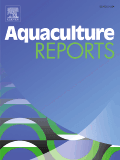
Aquaculture Reports
Pioneering Insights in Aquatic EcosystemsAquaculture Reports, published by Elsevier, is a prominent open-access journal dedicated to advancing knowledge in the fields of aquaculture, aquatic science, and animal science. Since its inception in 2015, this journal has quickly established itself as a leading platform for high-quality research, achieving a remarkable Q1 ranking in both Animal Science and Zoology and Aquatic Science as of 2023. With a Scopus ranking placing it in the top 7% of journals in Agricultural and Biological Sciences, Aquaculture Reports serves as an essential resource for researchers, professionals, and students alike, facilitating the exchange of innovative ideas and cutting-edge findings. The journal is indexed under ISSN 2352-5134 and is committed to fostering open access, ensuring that the latest research is readily available to the global scientific community. As it converges its years of publication from 2015 to 2024, Aquaculture Reports continues to shape the future of aquaculture research through rigorous peer-reviewed articles and impactful studies.

Journal of Fisheries
Illuminating the path to sustainable fishing practices.The Journal of Fisheries, an esteemed publication by BDFISH, serves as a pivotal platform for disseminating cutting-edge research in the field of fisheries science. With its commitment to Open Access since 2013, the journal ensures that vital knowledge is accessible to researchers, professionals, and students worldwide, promoting widespread dissemination of fishery-related discoveries. By featuring high-quality peer-reviewed articles, the Journal of Fisheries aims to advance the understanding of aquatic ecosystems, sustainable fishing practices, and the broader implications of fisheries on biodiversity and food security. Located at the Dept of Fisheries, University of Rajshahi, Bangladesh, this journal plays a crucial role in fostering academic dialogue and collaboration, contributing significantly to the growth and development of fisheries research globally.
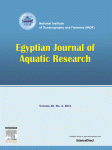
Egyptian Journal of Aquatic Research
Advancing aquatic science for a sustainable future.Welcome to the Egyptian Journal of Aquatic Research, a premier peer-reviewed academic journal published by ELSEVIER, dedicated to advancing the field of aquatic sciences. With a robust impact factor and recognition as a Q1 journal in key categories such as Aquatic Science and Ecology, this open access journal has established itself as a vital platform for disseminating high-quality research since its inception in 2012. The journal aims to provide comprehensive coverage of topics including ecology, evolutionary biology, and water science, making it a crucial resource for researchers, professionals, and students engaged in these dynamic fields. With Scopus rankings placing it in the top echelons of various categories, the Egyptian Journal of Aquatic Research fosters innovation, collaboration, and knowledge dissemination on a global scale, making it an indispensable asset for anyone invested in understanding and preserving aquatic systems.
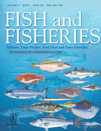
FISH AND FISHERIES
Innovating research for thriving aquatic ecosystems.FISH AND FISHERIES is a premier academic journal published by Wiley, dedicated to advancing knowledge in the fields of aquatic science, ecology, and oceanography. With an impressive impact reflected in its 2023 categorization in the Q1 quartile across multiple disciplines—including Aquatic Science and Management, Monitoring, Policy and Law—it serves as an essential resource for researchers, professionals, and students alike. This journal includes rigorous, peer-reviewed articles that address the multifaceted aspects of fish biology, conservation, and sustainable fisheries management. The journal's Scopus rankings further validate its significance, with top positions in Earth and Planetary Sciences, and its commitment to fostering scientific dialogue in an era where the oceans and aquatic ecosystems face unprecedented challenges. Despite not being an Open Access journal, FISH AND FISHERIES remains a vital platform for innovative research that informs policy and drives stewardship of fish populations and their habitats.